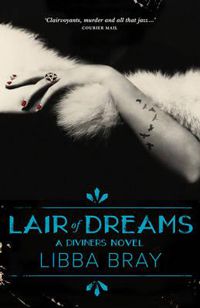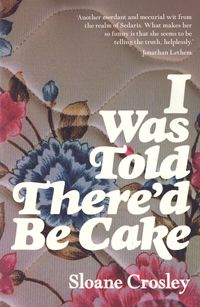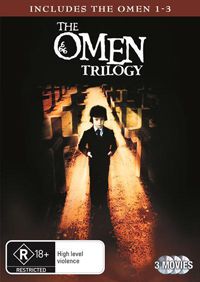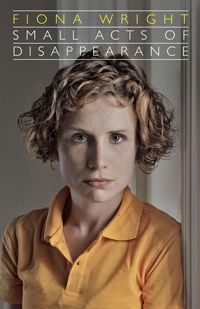The team behind Melbourne literary journal Kill Your Darlings tell us what they’re reading this month.
Veronica Sullivan, Online Editor:
Fiona Wright’s personal essay collection, Small Acts of Disappearance, floored me. Each essay focuses on a different aspect of the physical and psychological hunger that has shadowed Wright throughout her adult life. She seamlessly interweaves the theoretical with the personal, providing readers with medical, cultural, historical and literary contexts for anorexia and its manifestations. Describing the ways anorexia consumes the mind while simultaneously preventing consumption, Wright is often emotive and elegiac but never drifts into self-pity. The generosity and precision of her writing make this a stunning collection.
I bought Rebecca Stead’s Goodbye Stranger ostensibly as a gift for my teenage sister, but sneakily decided to read it myself first – and I’m so glad I did. Stead’s middle grade books – including the brilliant Newbery Medal winner When You Reach Me – contain the perfect mix of pathos, mystery and humour.
Goodbye Stranger focuses on a trio of life-long best friends whose desires, interests and attitudes are beginning to diverge – Emily is entering puberty and beginning to become attracted to (and attract) older boys; Tab is discovering feminism and social justice; Bridge is figuring out what it means to leave childhood behind and how far you have to go to grow up. Via these girls and their assorted friends and siblings, Stead examines issues like sexting, bullying and first crushes without moralising their choices. Goodbye Stranger is perfectly pitched at smart, curious and creative young teens – I can’t wait to hear what my sister thinks.

Meaghan Dew, Editorial Assistant and Podcast Producer:
In Welcome to Orphancorp, Mirii is about to graduate from the corporate orphanage system, so long as she can get through her last few days without committing an infraction worthy of transfer to Prisoncorp. But in a new orphanage, and with a fellow inmate working against her, it won’t take much to close off escape before she’s able to taste it. The girl-against-the-system theme isn’t new, but this novella’s Australian setting makes its dystopian elements all the more uncomfortable. What also feels new (but perhaps shouldn’t) is the uncringe-worthy treatment of sexuality and gender. I’m thrilled to hear there’s a sequel in the works.
In the post-Gatsby film days it felt like the 1920s were everywhere, and one of the more entertaining YA offshoots was Libba Bray’s The Diviners. Evie O’Neill, teenage good-time-girl of the South, is banished from her hometown after spilling secrets she learns by reading personal objects while fairly sloshed on the giggle juice. Not that she sees New York as much of a punishment. Lair of Dreams, the newly-released second book in the series, pits Evie and her fellow diviners against a brand new threat – a hungry ghost determined to drag the inhabitants of Chinatown (and wider New York) down with her. Great fun.

Samantha Forge, Deputy Online Editor:
Some books feel like old friends, ready to welcome me back into their pages whenever the need arises. Lately I’ve been revisiting some well-worn paths. Dodie Smith’s I Capture the Castle is one such well of solace, a snapshot of pre-WWII England with rolling meadows and just the right amount of love and loss. If it were published today it would almost certainly be billed as YA, as it perfectly captures the most satisfying elements of the genre: strong narrative drive, a compelling, relatable protagonist, and an uplifting – if bittersweet – ending.
Another comfort read is Sloane Crosley’s I Was Told There’d Be Cake. I loved Crosley before I’d even read a word she’d written, ever since I first heard the title of her collection of personal essays. The first essay, about Crosley’s propensity to blurt out ‘a pony’ when asked if there was anything she wanted, reminds me so strongly of my own reliance on the word ‘potatoes’ that I immediately felt like we were kindred spirits. It’s as if she is a shinier, funnier version of me – the person I could have been if I lived in New York and didn’t have a tendency to hide in the bathroom at parties. Some essays in the book are laugh-out-loud funny, while others are more melancholy, but the overarching theme is that sometimes bad stuff happens and since there’s nothing we can do about it, we may as well get a laugh from it along the way – which is often exactly the message that I need to hear.

Rebecca Starford, Publishing Director and Editor-in-chief:
We’ve fallen into a Netflix black hole at my house – only reaching our monthly download limit will set us free from this event horizon.
I’ve now watched The Omen trilogy for the first time (The Omen, Damien: Omen II and Omen III: The Final Conflict), and I was surprised at how much I enjoyed the films (I’d always imagined them schlocky and insubstantial). But the first film, The Omen, starring a delightful salt-and-pepper Gregory Peck as US diplomat Robert Thorn, is terrific, and far more psychologically disturbing than horrifying.
The film opens in Rome with Robert’s wife Katherine in labour. Unbeknownst to her, the baby dies, but when a priest suggests a switch of babies to Robert, he can’t refuse. Unfortunately, the new baby, Damien, is the Antichrist, and the film details his ensuing terror, as well as acts of violence perpetrated by his apostles. Watching forty years after its initial release, its anti-feminism is painfully evident.
The sequel is nearly as good, and stars William Holden as Richard Thorn, Robert’s brother and now adoptive father to Damien, who has turned into a seriously creepy teenager at a US military academy. And while the third film in the series, starring a baby-faced Sam Neill, is the weakest of the trilogy, it’s still worth a watch.



